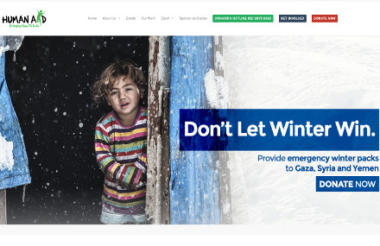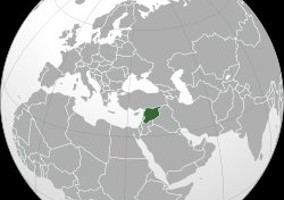A Charity Commission investigation into aid charity Human Aid UK has found that the trustees had “failed to adequately protect the charity and its assets”.
The investigation, which was first opened into the charity in 2013, examined the financial controls and management of the charity, and whether or not the trustees had complied with and fulfilled their duties and responsibilities as trustees under charity law.
The inquiry report says that although there was no evidence of misapplication of funds, there was as an “overall lack of adequate documentation to evidence the charity’s due diligence and monitoring of the end use of all the charity’s funds”. As a result, the trustees “failed to adequately protect the charity, which is mismanagement in the administration of the charity in this regard”.
The investigation was first opened after concerns were raised about an event arranged by the City University Students Union Islamic Students Society, in association with Human Aid UK. The event was to give a platform to individuals who hold what was reported to be controversial and/or extremist views, and that proceeds of the event would be donated to the charity.
This event was subsequently cancelled, but the issues raised in connection with the charity were assessed as being suitable for further consideration and the matter was referred to the commission’s monitoring team.
Lack of fundraising controls
During monitoring, the commission found that lack of controls, specifically around street collections, were putting the charity’s assets and reputation at risk. Two separate incidents took place in 2013 and 2014 in which police arrested individuals who were said to have been conducting unlicensed street collections.
The charity went on to submit a serious incident report to the commission advising that an individual had been arrested in connection with fraudulent fundraising and that the individual had claimed to be a volunteer of the charity. The charity said that having taken on advice and guidance from the commission, it could now categorically state that the individual in question was not a volunteer of the charity.
The charity went on to create new procedures around fundraising to address regulatory concerns previously raised by the commission.
Activities in Turkey and Syria
The commission also looked into the charity’s procedures for providing aid to Syria and found that while the charity does have financial policies in place to protect the charity’s assets, it was “not evident that these were being implemented and as such these were examined further during the inquiry”.
It was also revealed to the commission that the charity’s work, which started primarily as medical support and aid, now included running an orphan programme and winterisation programme - the supply of blankets and other aid for people during the winter.
It also found out that ambulances belonging to the charity with the intention to set up a paramedic service in Syria were being leased free of charge to hospitals in Syria via a partner organisation.
The commission also discovered that updates sent from a humanitarian coordinator based on the Syria border in Turkey were only made verbally and not being recorded elsewhere.
Incomplete records
The commission requested an inspection of the charity’s records which details financial transactions with its Turkish partner organisation and evidences the end use of the charity’s funds and goods. The commission found that the majority of the charity’s funds could be traced. However records to evidence the charity’s due diligence and the monitoring of the end use of funds for activities in Turkey and Syria were incomplete. The charity said documents appeared to have been overlooked, but did not provide an explanation as to why. They revealed that at certain times, such as Ramadan, the office was over-stretched.
The commission also found that there was a lack of due diligence taken by the charity, and a lack of adequate documentation to support due diligence had been taken place in relation to its Turkish partner organisation.
The charity was also unable to provide any evidence of receipts or invoices for the costs of a baby milk project totalling £8,000. The charity said trustees had not understood the extent of the paperwork needed and said that omissions had been done in error.
The commission ordered the trustees to make changes. It said there had been "misconduct and/or mismanagement in the administration of the charity" and the order "was necessary or desirable to act to protect the charity’s funds and secure the proper application of the funds going forward".
The order includes a number of actions to address compliance with trustee duties, due diligence and record keeping. The commission is monitoring the charity to ensure compliance with the order.
Inquiry took up ‘disproportionate amount’ of charity resources
In response to the inquiry, Human Aid UK said that it cooperated with the inquiry, despite it taking up a “disproportionate amount of charity resources and an excessively lengthy amount of time to conclude”.
It said it was disappointed with the conclusion that there was an overall lack of adequate documentation to evidence the charity’s due diligence and monitoring of the end use of some funds.
It said: “Working in conflict zones presents challenges in collecting and collating documentation on time. It is not always possible to have the required information on demand. The collection and filing of all documentation in relation to partners and monitoring end use was not provided at the time the commission inspected our files, however these were subsequently all provided for clarification; including the Baby Milk and the Emergency Medical Service convoy.
“As the commission inquiry records, we did not just rely on paper documentation for monitoring end use, we also placed a team on the grounds in Turkey, to help monitor our end use of funds.
“The charity can now focus on maximising value to our donors by ensuring we are working hard to deliver the much needed aid to beneficiaries here and abroad.”
Michelle Russell, director of investigations, monitoring and enforcement at the Charity Commission, said: “Many charities doing vital humanitarian work rely on partner organisations to help them carry out activity in the UK and overseas. The findings in this report are a reminder to those charities about the need for them to carry out proper due diligence on partners that receive money from or work closely with the charity and proper monitoring and verification of spend of the charity’s funds.
“A fundamental basic is the need to keep adequate and appropriate receipts and other records of spend and have proper systems and procedures in place to request, analyse, record and hold these on a systematic and regular basis.”
Related articles












